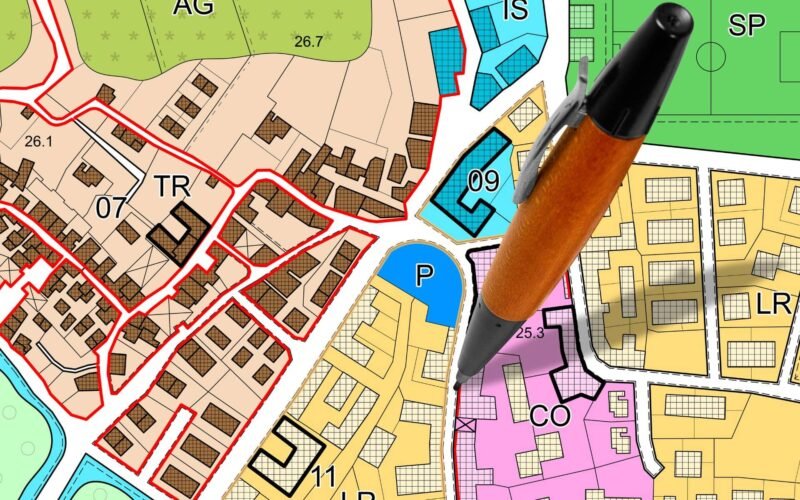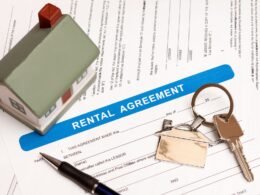|
Getting your Trinity Audio player ready...
|
Local zoning laws play a crucial role in determining how property can be used, including whether it can be rented out. These laws are in place to regulate land use, dictate building types, and ensure that residential, commercial, and industrial areas are distinct. For landlords, understanding zoning laws is essential to avoid fines, legal issues, or even forced eviction of tenants.
In this article, we’ll explore how local zoning laws affect property rentals, common zoning restrictions landlords face, and tips for navigating zoning regulations when managing rental properties.
What Are Zoning Laws?
Zoning laws are rules set by local governments to regulate the use of land within specific geographic areas, also known as zones. These zones are typically divided into categories such as:
- Residential
- Commercial
- Industrial
- Mixed-Use
Each zone has its own restrictions regarding what types of buildings can be constructed, what activities can take place, and how landowners can use their property.
How Zoning Laws Affect Property Rentals
Zoning laws can have a significant impact on whether and how you can rent out your property. The key factors that zoning laws influence include:
1. Type of Rental Allowed
Some zoning laws prohibit or restrict certain types of rentals. For example:
- Short-Term Rentals: Many cities restrict or ban short-term rentals (like Airbnb), especially in residential zones.
- Multi-Family Units: If you own a duplex, triplex, or apartment building, you may be restricted by zoning laws that govern how many rental units can exist in a particular area.
2. Occupancy Limits
Zoning regulations often impose occupancy limits, restricting how many tenants can legally occupy a rental unit. These limits are typically based on the size of the property or the number of bedrooms.
3. Parking and Building Requirements
In some zones, rental properties must comply with parking regulations or specific building codes. For example, landlords may need to provide a certain number of parking spaces per rental unit or ensure that their property meets local safety codes.
Read more – Do you want to know if you need a business license to rent property? Read our informational guide.
Zoning Laws for Short-Term Rentals
Short-term rentals, such as vacation homes listed on Airbnb or VRBO, are particularly affected by local zoning laws. Many cities have passed regulations that limit where short-term rentals can operate due to concerns about neighborhood disruption, housing shortages, and safety issues.
Example Cities:
- New Orleans, LA: Limits short-term rentals in residential areas and requires a permit for operation.
- Los Angeles, CA: Requires a registration process for short-term rental properties, with restrictions on the number of days a property can be rented.
If you’re considering offering short-term rentals, it’s important to research your city’s zoning laws and permit requirements to avoid fines and ensure you’re operating legally.
Zoning Restrictions for Multi-Family Properties
Multi-family properties, such as apartment buildings, duplexes, and townhouses, are subject to different zoning laws than single-family homes. In many cities, multi-family buildings are only allowed in specific zones, and there are often limits on how many units can be constructed in a given area.
Common Zoning Restrictions:
- Density Limits: Zoning laws may limit the number of units per acre of land. For example, some residential zones may only allow single-family homes, while others permit higher-density developments.
- Parking Requirements: Multi-family properties often need to provide more parking spaces than single-family rentals, in line with local zoning regulations.
- Height Restrictions: Zoning laws may limit the height of buildings, which can affect the design and size of multi-family developments.
How to Navigate Local Zoning Laws
Understanding and complying with zoning laws is crucial for landlords. Here’s how to navigate zoning regulations:
1. Check Local Zoning Maps
Most cities and counties have zoning maps available online that outline the zones and land use restrictions for different areas. Use these maps to determine the zoning designation of your rental property.
2. Consult with Local Authorities
If you’re unsure about whether your property is compliant with zoning laws, consult with your city or county’s zoning office. They can provide guidance on land use regulations and any permits you may need.
3. Obtain a Variance (If Necessary)
In some cases, landlords can apply for a variance or special use permit if their rental property doesn’t comply with zoning laws. A variance allows you to use your property in a way that doesn’t align with current zoning rules, but approval is often granted on a case-by-case basis.
Zoning Law Violations and Penalties
Violating zoning laws can result in serious consequences for landlords. Common penalties include:
- Fines: Local governments may impose fines for renting properties in violation of zoning laws.
- Eviction Orders: Tenants may be forced to vacate the property if it’s found to be in violation of zoning laws.
- Legal Action: In extreme cases, landlords may face lawsuits or legal action for operating rental properties outside of zoning restrictions.
Registering your property with local authorities is another key step. For guidance, read our article on how to register your rental property.
Frequently Asked Questions About Zoning Laws and Rentals
Can I rent out my property if it’s in a residential zone?
Yes, but only for long-term rentals in many cases. Short-term rentals may be restricted or require special permits depending on your city’s zoning laws.
What happens if I don’t comply with zoning laws?
Non-compliance can result in fines, legal action, or forced eviction of your tenants.
How can I find out my property’s zoning designation?
You can check your local government’s zoning map or contact your city’s zoning office for information.
Conclusion
Zoning laws are an important factor in determining how landlords can use and rent out their properties. Whether you’re renting out a short-term vacation home or managing multi-family units, understanding local zoning regulations is essential to avoiding legal issues and penalties.
Make sure to consult with local authorities, review zoning maps, and apply for the necessary permits or variances if needed. By staying compliant with zoning laws, you can ensure a successful and legally sound rental business.
Read on – Zoning laws can restrict the types of rentals allowed in certain areas. Learn how to legally rent out your property on Airbnb and comply with zoning restrictions.








